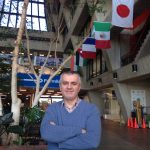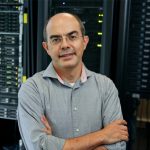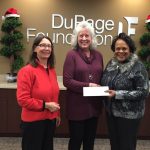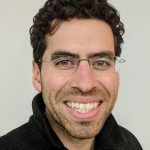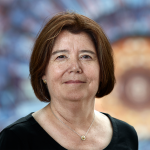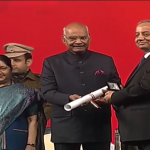Four students have received the prestigious DOE Office of Science Graduate Student Research fellowships to conduct their research at Fermilab. The goal of the program is to prepare graduate students for STEM careers critically important to the Office of Science mission by providing graduate thesis research opportunities at DOE laboratories.
award
Swapan Chattopadhyay is one of 62 individuals elected this year as a Royal Society of Edinburgh fellow. Designated as a corresponding fellow, he has attained a high international standing in his discipline in the eyes of the RSE. Chattopadhyay researches the science and technology of particle and light beams and quantum sensors.
Scientist Jean-Paul Carneiro and collaborators in France are setting the stage for one of the world’s first autonomous particle accelerators. They will incorporate the world’s leading code for computing the dynamics of particle beams into a Fermilab prototype. Funding is provided through the FACCTS program, which fosters productive partnerships between Chicago-based and French researchers.
From NIU Today, March 26, 2019: The American Physical Society has recognized Fermilab and Northern Illinois University physicist Philippe Piot for his outstanding contributions as a referee for APS journals.
The American Physical Society has recognized Fermilab and Northern Illinois University physicist Philippe Piot for his outstanding contributions as a referee for APS journals. APS’s highly selective Outstanding Referee program annually recognizes about 150 of the roughly 71,000 currently active referees.
Research has shown that the presence of trees and woody vegetation in grasslands can significantly reduce the area occupied by grassland birds. To maximize usable habitat in the Eola grasslands at Fermilab, the first step is to clear the open fields of woody vegetation and trees. FNA received this grant to support the first phase of the project and hire a contractor to remove trees from this area.
Fermilab engineer Ryan Rivera receives the consortium’s Young Alumni Leadership Award. GEM’s mission is to enhance the value of the nation’s human capital by increasing the participation of underrepresented groups at the master’s and doctoral levels in engineering and science. A GEM alumnus, Rivera is recognized for his influence, commitment and passion in creating better opportunities for underrepresented groups in STEM-related fields.
The Humboldt Foundation invites awardees to undertake prolonged periods of research in collaboration with scientists in Germany and to promote scientific cooperation between research institutions in both Germany and their home country. During his upcoming visit, Eichten intends to continue to study the systematics of systems involving heavy quarks.


